- Home
- Wilkie Collins
Hide and Seek Page 25
Hide and Seek Read online
Page 25
Though in no way remarkable for excess of caution, or for the possession of any extraordinary fund of worldly wisdom, Mr. Blyth frowned and shook his head suspiciously, while he listened to the curious narrative now addressed to him. As soon as it was concluded, he expressed the most decided disapprobation of the careless readiness with which Zack had allowed a perfect stranger to become intimate with him—reminding him that he had met his new acquaintance (of whom, by his own confession, he knew next to nothing) in a very disreputable place—and concluded by earnestly recommending him to break off all connection with so dangerous an associate, at the earliest possible opportunity.
Zack, on his side, was not slow in mustering arguments to defend his conduct. He declared that Mr. Marksman had gone into the Snuggery innocently, and had been grossly insulted before he became the originator of the riot there. As to his family affairs and his real name, he might have good and proper reasons for concealing them; which was the more probable, as his account of himself in other respects was straightforward and unreserved enough. He might be a little eccentric, and might have led an adventurous life; but it was surely not fair to condemn him, on that account only, as a bad character. In conclusion, Zack cited the loan he had received, as a proof that the stranger could not be a swindler, at any rate; and referred to the evident familiarity with localities and customs in California, which he had shown in conversation that afternoon, as affording satisfactory proof in support of his own statement that he had gained his money by gold-digging.
Mr. Blyth, however, still held firmly to his original opinion; and, first offering to advance the money from his own purse, suggested that young Thorpe should relieve himself of the obligation which he had imprudently contracted, by paying back what he had borrowed, that very afternoon.
"Get out of his debt," said Valentine, earnestly—"Get out of his debt, at any rate."
"You don't know him as well as I do," replied Zack. "He wouldn't think twice about knocking me down, if I showed I distrusted him in that way—and let me tell you, Blyth, he's one of the few men alive who could really do it."
"This is no laughing matter, Zack," said Valentine, shaking his head doubtfully.
"I never was more serious in my life," rejoined Zack. "I won't say I should be afraid, but I will say I should be ashamed to pay him his money back on the day when I borrowed it. Why, he even refused to accept my written acknowledgment of the loan! I only succeeded in forcing it on him unawares, by slipping it in among his banknotes; and, if he finds it there, I'll lay you any wager you like, he tears it up, or throws it into the fire."
Mr. Blyth began to look a little puzzled. The stranger's behavior about the money was rather staggering, to say the least of it.
"Let me bring him to your picture-show," pursued Zack. "Judge of him yourself, before you condemn him. Surely I can't say fairer than that? May I bring him to see the pictures? Or will you come back at once with me to Kirk Street, where he lives?"
"I must write to your mother, before I do any thing else; and I have work in hand besides for to-day and tomorrow," said Valentine. "All things considered, you had better bring your friend as you proposed just now. But remember the distinction I always make between my public studio and my private house. I consider the glorious mission of Art to apply to everybody; so I am proud to open my painting room to any honest man who wants to look at my pictures. But the freedom of my other rooms is only for my own friends. I can't have strangers brought up stairs: remember that."
"Of course! I shouldn't think of it, my dear fellow. Only you look at old Rough and Tough, and hear him talk; and I'll answer for the rest."
"Ah, Zack! Zack! I wish you were not so dreadfully careless about whom you get acquainted with. I have often warned you that you will bring yourself or your friends into trouble some day, when you least expect it. Where are you going now?"
"Back to Kirk Street. This is my nearest way; and I promised Mat—"
"Remember what you promised me, and what I am going to promise your mother—"
"I'll remember everything, Blyth. Good bye and thank you. Only wait till we meet on Saturday, and you see my new friend; and you will find it all right."
"I hope I shan't find it all wrong," said Mr. Blyth, forebodingly, as he followed the road to his own house.
CHAPTER V. FATE WORKS, WITH MR. BLYTH FOR AN INSTRUMENT.
The great day of the year in Valentine's house was always the day on which his pictures for the Royal Academy Exhibition were shown in their completed state to friends and admiring spectators, congregated in his own painting room. His visitor represented almost every variety of rank in the social scale; and grew numerous in proportion as they descended from the higher to the lower degrees. Thus, the aristocracy of race was usually impersonated, in his studio, by his one noble patron, the Dowager Countess of Brambledown; the aristocracy of art by two or three Royal Academicians; and the aristocracy of money by eight or ten highly respectable families, who came quite as much to look at the Dowager Countess as to look at the pictures. With these last, the select portion of the company might be said to terminate; and, after them, flowed in promiscuously the obscure majority of the visitors—a heterogeneous congregation of worshippers at the shrine of art, who were some of them of small importance, some of doubtful importance, some of no importance at all; and who included within their numbers, not only a sprinkling of Mr. Blyth's old-established tradesmen, but also his gardener, his wife's old nurse, the brother of his housemaid, and the father of his cook. Some of his respectable friends deplored, on principle, the "leveling tendencies" which induced him thus to admit a mixture of all classes into his painting-room, on the days when he exhibited his pictures. But Valentine was warmly encouraged in taking this course by no less a person than Lady Brambledown herself, whose perverse pleasure it was to exhibit herself to society as an uncompromising Radical, a reviler of the Peerage, a teller of scandalous Royal anecdotes, and a worshipper of the memory of Oliver Cromwell.
On the eventful Saturday which was to display his works to an applauding public of private friends, Mr. Blyth's studio, thanks to Madonna's industry and attention, looked really in perfect order—as neat and clean as a room could be. A semicircle of all the available chairs in the house—drawing-room and bed-room chairs intermingled—ranged itself symmetrically in front of the pictures. That imaginative classical landscape, "The Golden Age," reposed grandly on its own easel; while "Columbus in Sight of the New World"—the largest canvas Mr. Blyth had ever worked on, encased in the most gorgeous frame he had ever ordered for one of his own pictures—was hung on the wall at an easy distance from the ground, having proved too bulky to be safely accommodated by any easel in Valentine's possession.
Except Mr. Blyth's bureau, all the ordinary furniture and general litter of the room had been cleared out of it, or hidden away behind convenient draperies in corners. Backwards and forwards over the open space thus obtained, Mr. Blyth walked expectant, with the elastic skip peculiar to him; looking ecstatically at his pictures, as he passed and repassed them—now singing, now whistling; sometimes referring mysteriously to a small manuscript which he carried in his hand, jauntily tied round with blue ribbon; sometimes following the lines of the composition in "Columbus," by flourishing his right hand before it in the air, with dreamy artistic grace;—always, turn where he would, instinct from top to toe with an excitable activity which defied the very idea of rest—and always hospitably ready to rush to the door and receive the first enthusiastic visitor with open arms, at a moment's notice.
Above stairs, in the invalid room, the scene was of a different kind. Here also the arrival of the expected visitors was an event of importance; but it was awaited in perfect tranquillity and silence. Mrs. Blyth lay in her usual position on the couch-side of the bed, turning over a small portfolio of engravings; and Madonna stood at the front window, where she could command a full view of the garden gate, and of the approach from it to the house. This was always her place on the days when t
he pictures were shown; for, while occupying this position, she was able, by signs, to indicate the arrival of the different guests to her adopted mother, who lay too far from the window to see them. On all other days of the year, it was Mrs. Blyth who devoted herself to Madonna's service, by interpreting for her advantage the pleasant conversations that she could not hear. On this day, it was Madonna who devoted herself to Mrs. Blyth's service, by identifying for her amusement the visitors whose approach up the garden walk she could not safely leave her bed to see.
No privilege that the girl enjoyed under Valentine's roof was more valued by her than this; for by the exercise of it, she was enabled to make some slight return in kind for the affectionate attention of which she was the constant object. Mrs. Blyth always encouraged her to indicate who the different guests were, as they followed each other, by signs of her own choosing,—these signs being almost invariably suggested by some characteristic peculiarity of the person represented, which her quick observation had detected at a first interview, and which she copied with the quaintest exactness of imitation. The correctness with which her memory preserved these signs, and retained, after long intervals, the recollection of the persons to whom they alluded, was very extraordinary. The name of any mere acquaintance, who came seldom to the house, she constantly forgot, having only perhaps had it interpreted to her once or twice, and not hearing it as others did, whenever it accidentally occurred in conversation. But if the sign by which she herself had once designated that acquaintance—no matter how long ago—happened to be repeated by those about her, it was then always found that the forgotten person was recalled to her recollection immediately.
From eleven till three had been notified in the invitation cards as the time during which the pictures would be on view. It was now long past ten. Madonna still stood patiently by the window, going on with a new purse which she was knitting for Valentine; and looking out attentively now and then towards the road. Mrs. Blyth, humming a tune to herself, slowly turned over the engravings in her portfolio, and became so thoroughly absorbed in looking at them, that she forgot altogether how time was passing, and was quite astonished to hear Madonna suddenly clap her hands at the window, as a signal that the first punctual visitor had passed the garden-gate.
Mrs. Blyth raised her eyes from the prints directly, and smiled as she saw the girl puckering up her fresh, rosy face into a childish imitation of old age, bending her light figure gravely in a succession of formal bows, and kissing her hand several times with extreme suavity and deliberation. These signs were meant to indicate Mrs. Blyth's father, the poor engraver, whose old-fashioned habit it was to pay homage to all his friends among the ladies, by saluting them from afar off with tremulous bows and gallant kissings of the hand.
"Ah!" thought Mrs. Blyth, nodding, to show that she understood the signs—"Ah! there's father. I felt sure he would be the first; and I know exactly what he will do when he gets in. He will admire the pictures more than anybody, and have a better opinion to give of them than anybody else has; but before he can mention a word of it to Valentine, there will be dozens of people in the painting-room, and then he will get taken suddenly nervous, and come up here to me."
While Mrs. Blyth was thinking about her father, Madonna signalized the advent of two more visitors. First, she raised her hand sharply, and began pulling at an imaginary whisker on her own smooth cheek—then stood bolt upright, and folded her arms majestically over her bosom. Mrs. Blyth immediately recognized the originals of these two pantomime portrait-sketches. The one represented Mr. Hemlock, the small critic of a small newspaper, who was principally remarkable for never letting his whiskers alone for five minutes together. The other portrayed Mr. Bullivant, the aspiring fair-haired sculptor, who wrote poetry, and studied dignity in his attitudes so unremittingly, that he could not even stop to look in at a shop-window, without standing before it as if he was his own statue.
In a minute or two more, Mrs. Blyth heard a prodigious grating of wheels, and trampling of horses, and banging of carriage-steps violently let down. Madonna immediately took a seat on the nearest chair, rolled the skirt of her dress up into her lap, tucked both her hands inside it, then drew one out, and imitated the action of snuff-taking—looking up merrily at Mrs. Blyth, as much as to say, "You can't mistake that, I think?"—Impossible! old Lady Brambledown, with her muff and snuff-box, to the very life.
Close on the Dowager Countess followed a visitor of low degree. Madonna—looking as if she was a little afraid of the boldness of her own imitation—began chewing an imaginary quid of tobacco; then pretended to pull it suddenly out of his month, and throw it away behind her. It was all over in a moment; but it represented to perfection Mangles, the gardener; who, though an inveterate chewer of tobacco, always threw away his quid whenever he confronted his betters, as a duty that he owed to his own respectability.
Another carriage. Madonna put on a suppositions pair of spectacles, pretended to pull them off, rub them bright, and put them on again; then, retiring a little from the window, spread out her dress into the widest dimensions that it could be made to assume. The new arrivals thus portrayed, were the doctor, whose spectacles were never clean enough to please him; and the doctor's wife, an emaciated fine lady, who deceitfully suggested the presence of vanished charms, by wearing a balloon under her gown—which benevolent rumor pronounced to be only a crinoline petticoat.
Here there was a brief pause in the procession of visitors. Mrs. Blyth beckoned to Madonna, and began talking on her fingers.
"No signs of Zack yet—are there, love?"
The girl looked anxiously towards the window, and shook her head.
"If he ventures up here, when he does come, we must not be so kind to him as usual. He has been behaving very badly, and we must see if we can't make him ashamed of himself."
Madonna's color rose directly. She looked amazed, sorry, perplexed, and incredulous by turns. Zack behaving badly?—she would never believe it!
"I mean to make him ashamed of himself, if he ventures near me!" pursued Mrs. Blyth.
"And I shall try if I can't console him afterwards," thought Madonna, turning away her head for fear her face should betray her.
Another ring at the bell! "There he is, perhaps," continued Mrs. Blyth, nodding in the direction of the window, as she signed those words.
Madonna ran to look: then turned round, and with a comic air of disappointment, hooked her thumbs in the arm-holes of an imaginary waistcoat. Only Mr. Gimble, the picture-dealer, who always criticized works of art with his hands in that position.
Just then, a soft knock sounded at Mrs. Blyth's door; and her father entered, sniffing with a certain perpetual cold of his which nothing could cure—bowing, kissing his hand, and frightened up-stairs by the company, just as his daughter had predicted.
"Oh, Lavvie! the Dowager Countess is downstairs, and her ladyship likes the pictures," exclaimed the old man, snuffling and smiling infirmly in a flutter of nervous glee.
"Come and sit down by me, father, and see Madonna doing the visitors. It's funnier than any play that ever was acted."
"And her ladyship likes the pictures," repeated the engraver, his poor old watery eyes sparkling with pleasure as he told his little morsel of good news over again, and sat down by the bedside of his favorite child.
The rings at the bell began to multiply at compound interest. Madonna was hardly still at the window for a moment, so many were the visitors whose approach up the garden walk it was now necessary for her to signalize. Down-stairs, all the vacant seats left in the painting room were filling rapidly; and the ranks of standers in the back places were getting two-deep already.
There was Lady Brambledown (whose calls at the studio always lasted the whole morning), sitting in the center, or place of honor, taking snuff fiercely, talking liberal sentiments in a cracked voice, and apparently feeling extreme pleasure in making the respectable middle classes stare at her in reverent amazement. Also, two Royal Academicians—a saturnine Aca
demician, swaddled in a voluminous cloak; and a benevolent Academician, with a slovenly umbrella, and a perpetual smile. Also, the doctor and his wife, who admired the massive frame of "Columbus," but said not a word about the picture itself. Also, Mr. Bullivant, the sculptor, and Mr. Hemlock, the journalist, exchanging solemnly that critical small talk, in which such words as "sensuous," "aesthetic," "objective," and "subjective," occupy prominent places, and out of which no man ever has succeeded, or ever will succeed, in extricating an idea. Also, Mr. Gimble, fluently laudatory, with the whole alphabet of Art-Jargon at his fingers' ends, and without the slightest comprehension of the subject to embarrass him in his flow of language. Also, certain respectable families who tried vainly to understand the pictures, opposed by other respectable families who never tried at all, but confined themselves exclusively to the Dowager Countess. Also, the obscure general visitors, who more than made up in enthusiasm what they wanted in distinction. And, finally, the absolute democracy, or downright low-life party among the spectators—represented for the time being by Mr. Blyth's gardener, and Mr. Blyth's cook's father—who, standing together modestly outside the door, agreed, in awe-struck whispers, that the "Golden Age" was a Tasty Thing, and "Columbus in sight of the New World," a Beautiful Piece.
All Valentine's restlessness before the Visitors arrived was as nothing compared with his rapturous activity, now that they were fairly assembled. Not once had he stood still, or ceased talking since the first spectator entered the room. And not once, probably, would he have permitted either his legs or his tongue to take the slightest repose until the last guest had departed from the Studio, but for Lady Brambledown, who accidentally hit on the only available means of fixing his attention to one thing, and keeping him comparatively quiet in one place.

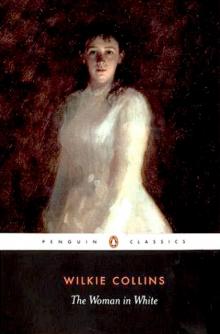 The Woman in White
The Woman in White The Queen of Hearts
The Queen of Hearts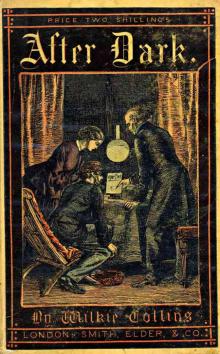 Miss Jeromette and the Clergyman
Miss Jeromette and the Clergyman Man and Wife
Man and Wife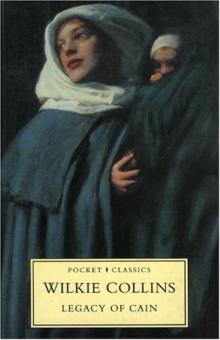 The Legacy of Cain
The Legacy of Cain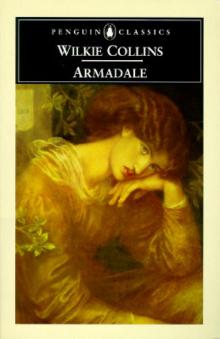 Armadale
Armadale The Frozen Deep
The Frozen Deep John Jago's Ghost or the Dead Alive
John Jago's Ghost or the Dead Alive Poor Miss Finch
Poor Miss Finch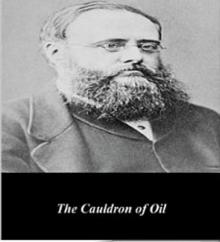 The Cauldron of Oil: A Case Worth Looking At
The Cauldron of Oil: A Case Worth Looking At The Poisoned Meal
The Poisoned Meal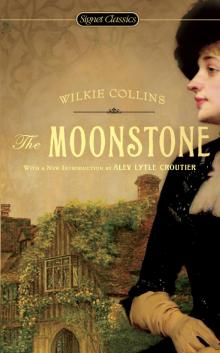 The Moonstone
The Moonstone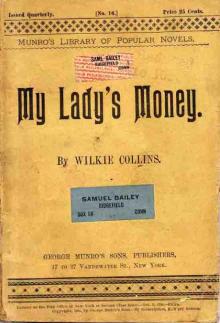 My Lady's Money
My Lady's Money Classic Ghost Stories
Classic Ghost Stories Jezebel's Daughter
Jezebel's Daughter The Devil's Spectacles
The Devil's Spectacles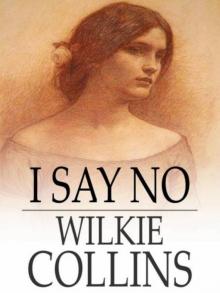 I Say No
I Say No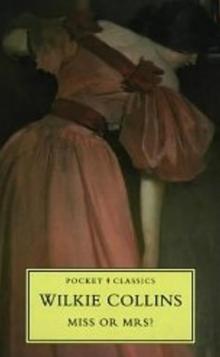 Miss or Mrs.?
Miss or Mrs.?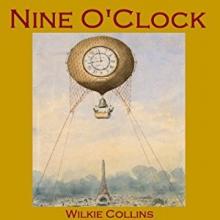 Nine O'Clock
Nine O'Clock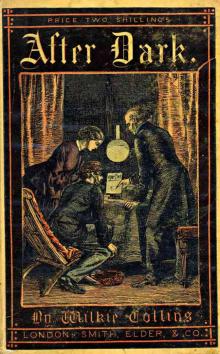 The Lawyer's Story of a Stolen Letter
The Lawyer's Story of a Stolen Letter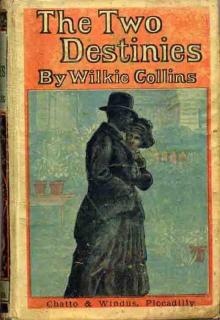 The Two Destinies
The Two Destinies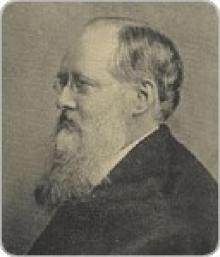 Mr. Percy and the Prophet
Mr. Percy and the Prophet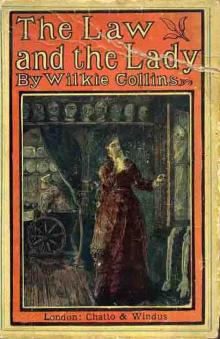 The Law and the Lady
The Law and the Lady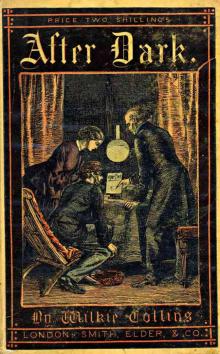 The Nun's Story of Gabriel's Marriage
The Nun's Story of Gabriel's Marriage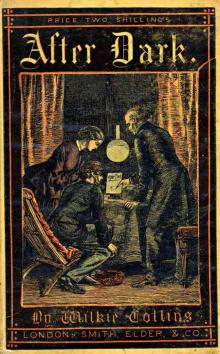 After Dark
After Dark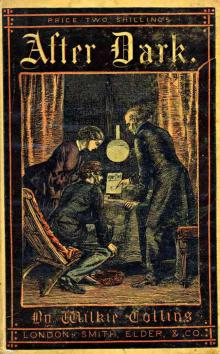 Mr. Captain and the Nymph
Mr. Captain and the Nymph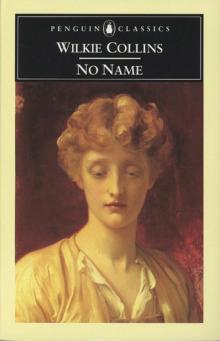 No Name
No Name The Moonstone (Penguin Classics)
The Moonstone (Penguin Classics) Antonina
Antonina Woman in White (Barnes & Noble Classics Series)
Woman in White (Barnes & Noble Classics Series)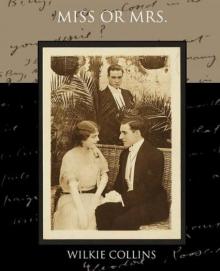 Miss or Mrs
Miss or Mrs The Dead Alive
The Dead Alive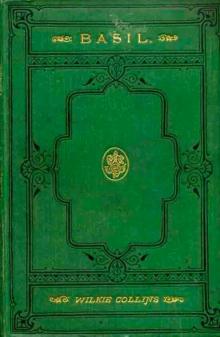 Basil
Basil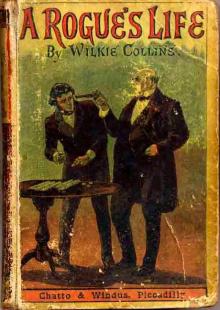 A Rogue's Life
A Rogue's Life The New Magdalen
The New Magdalen Blind Love
Blind Love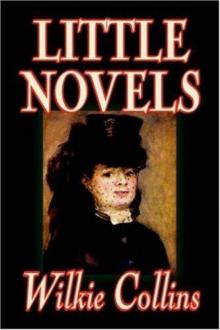 Little Novels
Little Novels The Lazy Tour of Two Idle Apprentices
The Lazy Tour of Two Idle Apprentices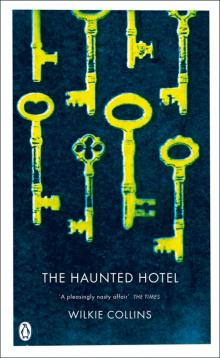 The Haunted Hotel
The Haunted Hotel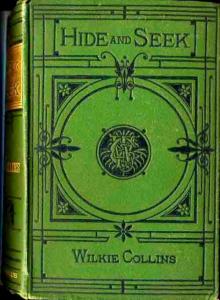 Hide and Seek
Hide and Seek